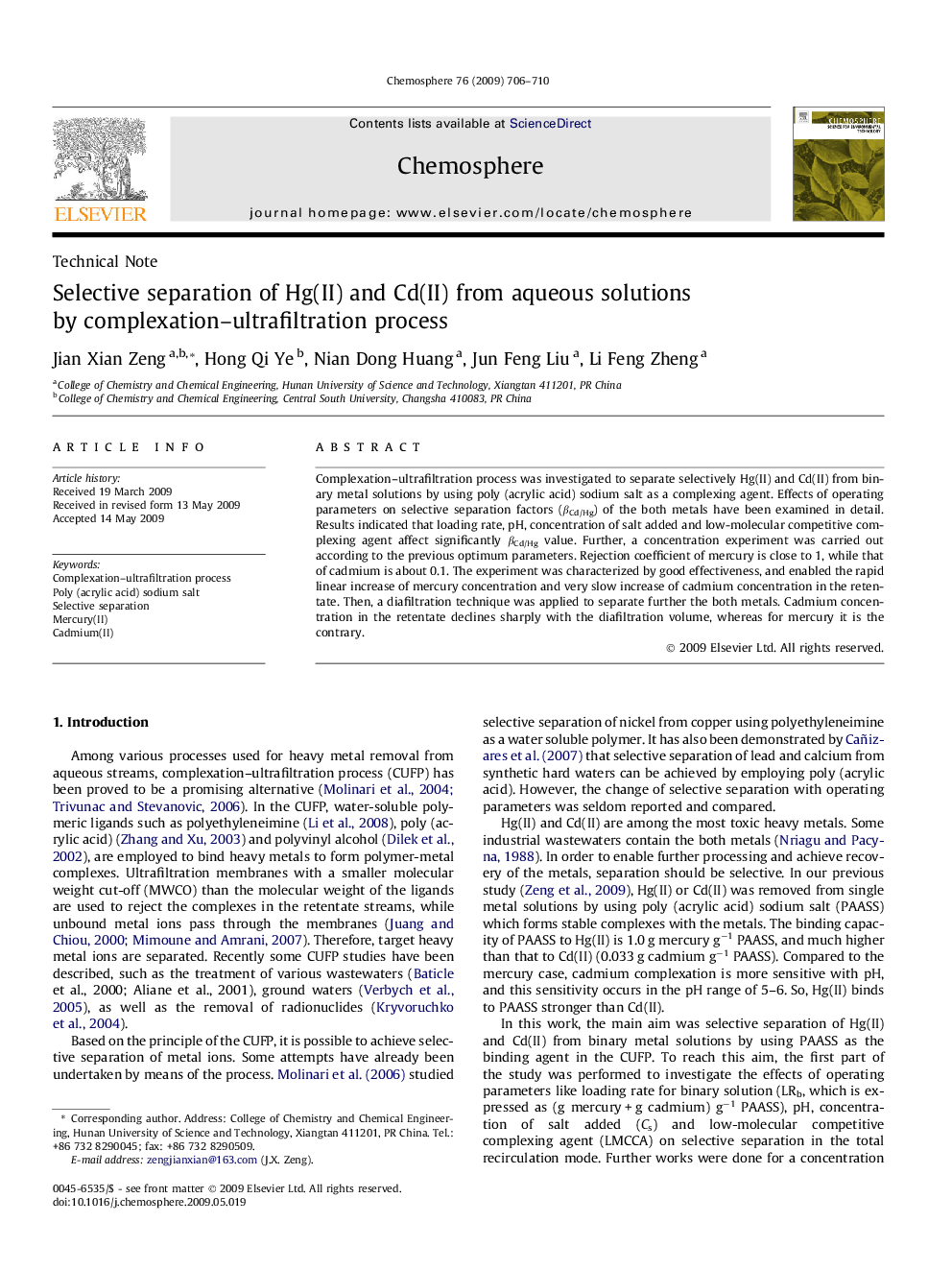| Article ID | Journal | Published Year | Pages | File Type |
|---|---|---|---|---|
| 4412848 | Chemosphere | 2009 | 5 Pages |
Complexation–ultrafiltration process was investigated to separate selectively Hg(II) and Cd(II) from binary metal solutions by using poly (acrylic acid) sodium salt as a complexing agent. Effects of operating parameters on selective separation factors (βCd/Hg) of the both metals have been examined in detail. Results indicated that loading rate, pH, concentration of salt added and low-molecular competitive complexing agent affect significantly βCd/Hg value. Further, a concentration experiment was carried out according to the previous optimum parameters. Rejection coefficient of mercury is close to 1, while that of cadmium is about 0.1. The experiment was characterized by good effectiveness, and enabled the rapid linear increase of mercury concentration and very slow increase of cadmium concentration in the retentate. Then, a diafiltration technique was applied to separate further the both metals. Cadmium concentration in the retentate declines sharply with the diafiltration volume, whereas for mercury it is the contrary.
